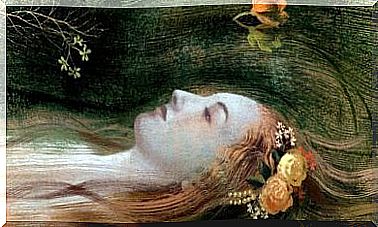Jean-Paul Sartre: Biography Of An Existentialist Philosopher

Philosopher, activist, journalist, politician, writer… Jean-Paul Sartre was one of the most important representatives of existentialism and humanist Marxism. His works actually reflect the beliefs of his contemporaries. Sartre’s ideas and legacy really influenced psychology.
Sartre was influenced by the great German thinkers such as Husserl and Heidegger. He won the Nobel Prize but then decided not to accept it. He did this because he had an unyielding need to live according to his ideological principles.
Sartre was also the kind of man who took up arms to fight for the liberation of African people. With this he showed us that freedom requires a sincere commitment.
In addition to his work as a philosopher, activist and writer, it is also fascinating to examine his influence on psychology. After all, Jean-Paul Sartre laid the foundations for a new trend in this field: existential humanism.
These ideas about man’s responsibility for his own actions, about self-knowledge and his mantra “Je pense donc je suis” (I think, therefore I am) have ushered in a new era in psychology.
Jean-Paul Sartre

Sartre was born in Paris on June 21, 1905. He was the son of a military naval officer. He lost his father at a young age. So his mother and grandfather raised him. Anna Marie Schweitzer instilled in him a love for literature. His grandfather, Albert Schweitzer, aroused his interest in philosophy.
In 1929 he became a doctor of philosophy. When he was a student, he met Simone de Beauvoir. She eventually became his life partner and indispensable intellectual ally.
Everything changed drastically when World War II started. In fact, Sartre was even captured by the Germans. This had a significant impact on his work after he regained his freedom in 1941. Shortly afterwards he started working. He collaborated with Albert Camus on Combat, the magazine of the Resistance.

A committed social activist
In 1945 Jean-Paul Sartre and Simone de Beauvoir started a major social project together: the political and literary magazine Les Temps Modernes. In this decisive period of their lives, the foundations of their socialist ideals had already been laid.
He was also a fierce critic of the Vietnam War. In fact, he had made it his mission to show the world the crimes and injustices promoted by the United States. Later, in 1964, Sartre was awarded the Nobel Prize for his contributions to philosophy. We’ve already mentioned it. He did not accept that award.
According to Sartre, accepting the Nobel Prize would cause him to lose his critical outlook as a philosopher. Throughout his life he has devoted himself to many charities and lived in a humble way.
Sartre died on April 15, 1980 at the age of 74. Thousands of people came to his funeral. His body is currently resting in the Montparnasse cemetery in Paris.
La Nauséé – the great literary contribution of Jean-Paul Sartre
To understand the legacy of Jean-Paul Sartre and his contribution to existential humanism, see his first work, La Nauséé. After all, it is not only of an undeniable literary quality. It brought society to a new way of understanding the world.
The influences of La Nausee
When Sartre wrote his book, he was not much older than 26 years. At that time he lived in Berlin. It coincided with the period when Hitler rose to power. At that time he only read Husserl and Heidegger. He felt a real fascination with Husserl’s phenomenology and the way he described events.
That is why Sartre ‘s most famous works are an exercise in phenomenology. In this book, he describes his own experiences as a high school teacher. All he felt and perceived in this environment was darkness, emptiness and a lack of meaning.

Antoine Roquentin, Sartre .’s alter ego
The main character in La Nausée is Antoine Roquentin, Sartre’s alter ego. In Antoine we see a young man who goes to Indochina and settles in an imaginary city with a very concrete goal.
He wants to make a biography about an aristocrat from the 18th century. All our main character does is write, interact with the hotel owner, listen to jazz and talk to a self-taught artist.
The main character is very apathetic. When you read the book, you notice that he doesn’t understand what is going on around him.
Final Thoughts
In this book Sartre wanted us to understand that a person can resist tyranny and choose his own path. He can do this as soon as he accepts the undeniable truth that nothing has meaning.








